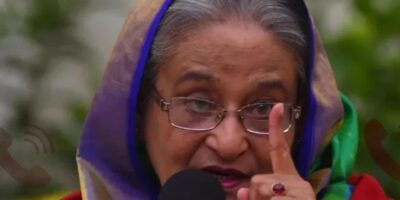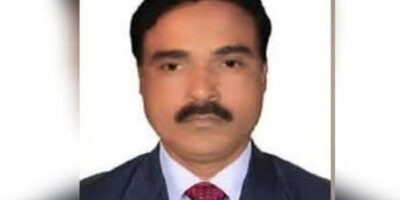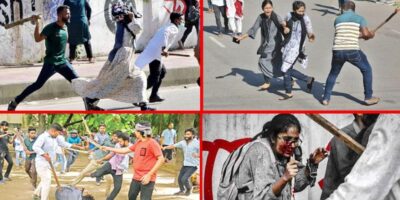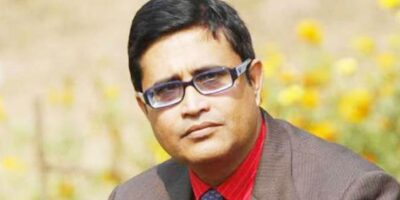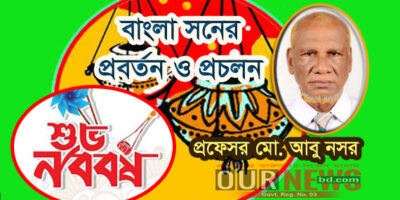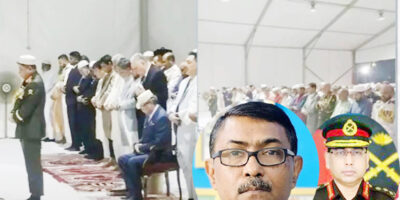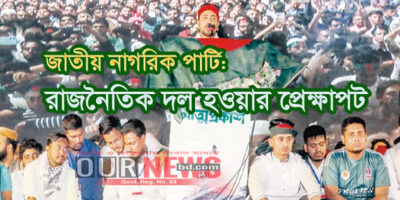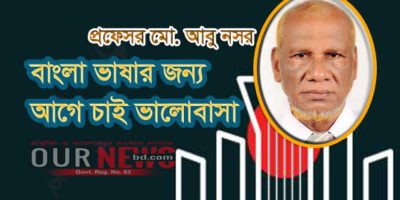Govt Mesures to Ensure Freedom of Media in Bangladesh
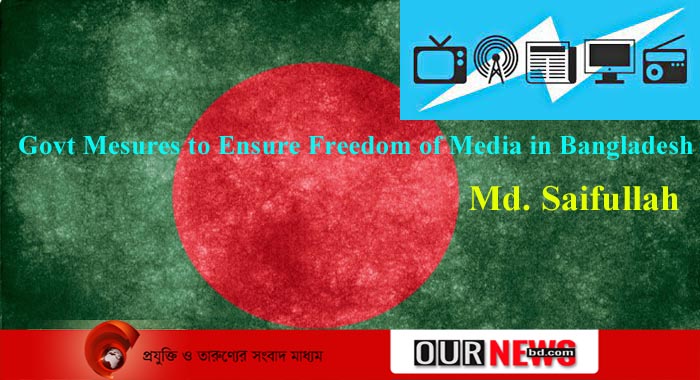
The Constitution of the People’s Republic of Bangladesh guarantees freedom of thought and conscience and of speech as fundamental rights. The present democratic government led by Prime Minister Sheikh Hasina firmly believes in freedom of press, as the fourth estate after executive, legislature and judiciary to run the state-craft. Article 39 of the Constitution of Bangladesh lays emphasis on the freedom of press and uninterrupted flow of information excepting issues relating to sovereignty and integrity of the state. Following the spirit of the constitution, the government provides all-out support to the media and thus upholds freedom of expression of opinion in the society.
The present government is firmly determined to uphold the freedom of press as envisaged in the Constitution of Bangladesh. Accordingly, the government of Prime Minister Sheikh Hasina just after assuming office in 2009 enacted laws and rules on ‘Right To Information’-RTI and instituted the Information Commission. The government officials are now bound to provide information to the newsmen within the time frame stipulated in the law which is playing a vital role in maintaining transparency and accountability in running the government. Following RTI, there are assigned officials at each and every office to provide information to media people and others as they need. The number of such officials at the public and private offices all over the country is 42,254. Under the law, 1,19,831 individuals were served with the information as per their demand across the country during July, 2009 to December, 2020. The law has been proved so useful that the Information Commission has to dispose 2218 cases relating to RTI out of 2315 accepted for hearing since its inception. Punitive actions have been taken in such 62 cases. Many government officials have been punished for their negligence or failure in co-operating the media people as per the RTI rules. The power of arresting journalists without court-warrant under the Special Power Act has been ceased. The journalists in the country are now working without any fear. Stringent measures have been taken against the incident of attacks on journalists and bloggers by the vested quarters and militants. Such attacks on media people have drastically came down due to the government’s instant action of zero tolerance policy. The Press Council is working to resolve the disputes among the stakeholders of the media.
Newspaper owners can import tax free newsprint and other printing materials from abroad. On the other hand, they are bound by law to offer their journalists a salary package recommended by the wage board constituted by the representatives from the government, journalists and the owners. The government has already announced the 9th Wage Board Award. The government is also contemplating to include journalists, camera-persons and other related support service people in the wage board. Imposing ban on airing commercial ads in the downlinked foreign satellite TV channels and control on the digital content uploaded in the social media greatly help the flourishment of the local media. Income from the government ads and supplements also help them.
Digital Bangladesh Programme being implemented by the government has reinforced media manifolds. County-wide availability of electricity, high speed internet, mobile phones, computers, laptops, television channels contribute to bring information at the finger touch of the people. The present democratic government is providing policy support by framing various laws and regulations. Right to Information Act 2009, Cable Television Network Operation and Licensing Regulation 2010, Private FM Radio Centre Installation and peration
Policy 2010, National Broadcasting Policy 2014, Bangladesh Journalists Welfare Trust Law 2014, and National Online Mass Media Policy 2017(amended in 2020) are very much mention-worthy. To make media more pro-people, the Ministry of Information and Broadcasting following National Online Mass Media Policy so far approved 85 online news portals and online news version of 92 established newspapers of the country. Registration of the approved online news services is going on under the supervision of Press Information Department. More online news media would be approved soon. The government has a plan to develop a new agency named ‘National Broadcasting Authority’ which would ultimately oversee the online media.
With the support of the media friendly policy of the government, a huge number of newspapers are being published in the country. According to information received from the Department of Films and Publications, there are over 700 media enlisted newspapers in the country. Out of all these, 560 are media enlisted dailies of which 255 are being published from the capital Dhaka. Electronic media have got a great jump with the Digital Bangladesh Programme. Along with state run TV and Radio, the government has provided license to 45 private TV channels, 27 FM radio and 31 community radio stations. As per official data, 31 TV channels, 22 FM and 17 community radio stations are now in transmission and the rest are taking preparation for launching. Launching Bangabandhu Satellite-1 has strengthened media arena in the country. All the TV channels of the country are being transmitted through Bangabandhu Satellite-1 at subsidized rate. The plan of the government to launch Bangabandhu Satellite-2 would surely contribute more in this regard.
Both the print and electronic media enjoy full freedom in running their activities. Live programmes like talk-show, discussion, debate in the TV channels are very popular in the country. Noted personalities, politicians, intellectuals, educationists, journalists and even grass-root people regularly participate in these live events and freely express their opinion. They most often go on rampant criticism of the government or of its activities without any censor. The government never interferes such free expression of opinion and views. Other electronic media even newspapers taking the advantage of 360 degree strategy also telecast such live participatory programmes. The freedom of expression of opinion and also free flow of information have been strengthened with the widespread use of social media and mobile phones. Presently, about 17 crore mobile SIM and 11 crore internet users in the country show an immense potentiality of the non-traditional ‘neo-media’ in the society. Considering its importance, the Ministry of Information and Broadcasting has decided to create its new wing named ‘Social Media Wing.’
In true sense, an era of free electronic media began in the country during the first tenure of Sheikh Hasina’s government (1996—2021) with the approval of the private TV channels for the first time. The installation of the first private TV channel of the country, Ekushey TV, is mention-worthy. The subsequent BNP-Jamat Government following their anti-mass media policy stopped the transmission of the TV channel.
The Awami League government has taken necessary steps for grooming up equipped manpower for the ever expanding media arena of the country. The government arranges training for the journalists across the country to raise their professional standard. The government has also taken steps to create the scope of higher education on journalism at various public and private universities. A huge number of university graduates are now being
engaged in the ever expanding media world. The government established Bangladesh Cinema and Television Institute in 2014 for developing skilled media people for the potential electronic media.The government spent 20 crore taka for the expansion of Press Institute of Bangladesh and National Institute of Mass Communication who also provide training to the media people. To extend necessary support to media, the 16-storied ‘Tothyo Bhaban’– Information Building costing 104 crore 12 lac taka has been built. The government has taken a project to develop Information Complex at the district level. And lastly, Press Information Department, a government agency directly working with the journalists in providing them with professional support, is going to open its offices at Sylhet, Barishal, Mymensingh and Rangpur Divisions.
The journalists suffer from job insecurity in their own working environment in the both print and electronic media which is also a threat to the freedom of press. To ensure their job security, the formulation of the Mass Media Workers Act is at the final stage. Formation of the Bangladesh Journalists Welfare Trust is another epoch-making media friendly step of the present government. The trust running with the contribution from the government has given 17 crore 87 lac taka to 5263 insolvent and poverty-stricken media workers since 2011-12. In two Phases, 3 crore 66 lac taka was provided to the media people distressed due to the spread of coronavirus with 10,000 taka for an indidual. Prime Minister Sheikh Hasina donated 10 crore taka to the Bangladesh Journalists Welfare Trust for the fiscal 2020-21 for the coronavirus victim media people. The distribution of the fund is going on.
PID Feature
Writer of the feature Md. Saifullah is presently serving Press Information Department as Senior Deputy Principal Information Officer.

এই রকম সংবাদ আরো পেতে হলে এই লেখার উপরে ক্লিক করে আমাদের ফেসবুক ফ্যান পেইজে লাইক দিয়ে সংযুক্ত থাকুন। সংবাদটি সম্পর্কে মন্তব্য করতে হলে এই পেইজের নীচে মন্তব্য করার জন্য ঘর পাবেন









